My First $1 Million: General Manager in Construction/Home Services, 46, Indiana
"We went from building 100-plus homes each year in 2006 to zero in 2008 — nearly destroying what my parents had spent 25 years creating."

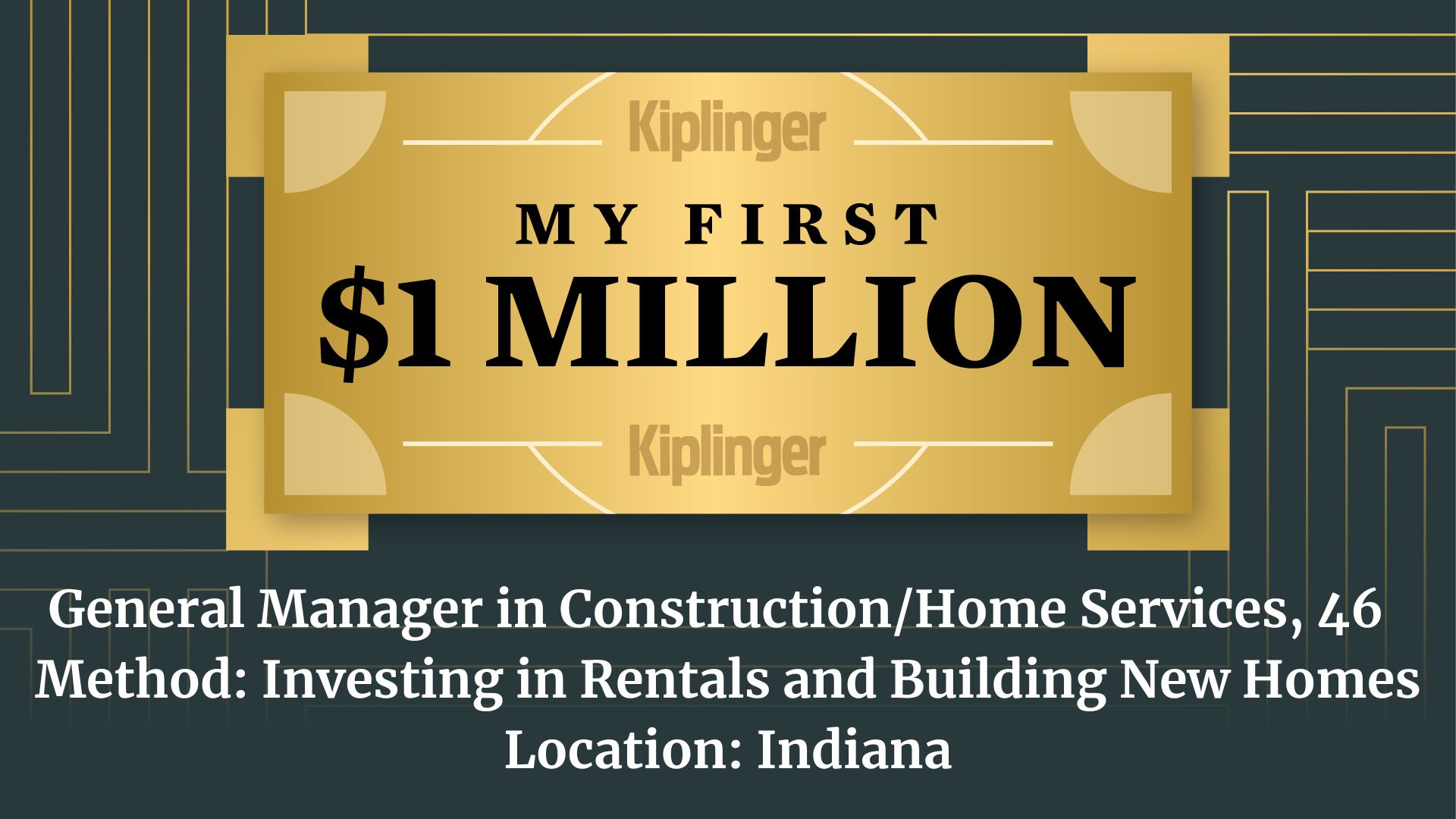
Profit and prosper with the best of Kiplinger's advice on investing, taxes, retirement, personal finance and much more. Delivered daily. Enter your email in the box and click Sign Me Up.
You are now subscribed
Your newsletter sign-up was successful
Want to add more newsletters?
Welcome to Kiplinger's My First $1 Million series, in which we hear from people who have made $1 million. They're sharing how they did it and what they're doing with it. This time, we hear from a married 46-year-old general manager in construction/home services in Indiana.
See our earlier profiles, including a writer in New England, a literacy interventionist in Colorado, a semiretired entrepreneur in Nashville and an events industry CEO in Northern New Jersey. (See all of the profiles here.)
Each profile features one person or couple, who will always be completely anonymous to readers, answering questions to help our readers learn from their experience.
From just $107.88 $24.99 for Kiplinger Personal Finance
Become a smarter, better informed investor. Subscribe from just $107.88 $24.99, plus get up to 4 Special Issues

Sign up for Kiplinger’s Free Newsletters
Profit and prosper with the best of expert advice on investing, taxes, retirement, personal finance and more - straight to your e-mail.
Profit and prosper with the best of expert advice - straight to your e-mail.
These features are intended to provide a window into how different people build their savings — they're not intended to provide financial advice.
THE BASICS
How did you make your first $1 million?
My father and I started investing in real estate in 2004 with the purchase of a single-family home as a rental. Over the years, we reinvested the rental income in order to acquire additional properties.

Simultaneous to that, I worked in the business that my parents had started. Then the 2008 financial crisis nearly ended it all.
As a construction-related business, we went from building 100-plus homes each year in 2006 to zero in 2008 — nearly destroying what my parents had spent 25 years creating.
Together, we restructured and refocused the company in a new direction, focusing on smaller, repeatable maintenance and repair jobs rather than the big-ticket (and big-risk) business of building new homes.
We used the equity we had built up in the rental properties to convince the bank not to call in the loans on the construction business. It was slow-going and took more than a decade. But day by day, things got better. The business got stronger.
My parents were able to retire comfortably along the way.
And then, in 2021, I had the opportunity to sell the business to a private equity-backed firm for a life-changing amount of money.
What are you doing with the money?
I invested the majority of the proceeds from the sale of the business in the stock market.
THE FUN STUFF
Did you do anything to celebrate?
My wife and I took four of our closest friends to dinner at Alinea, a Michelin-starred restaurant in Chicago — something we had dreamed of ever since we had seen the restaurant featured on a Netflix show.

The food is long gone, but the memories of an amazing time with friends will last a lifetime!
What is the best part of making $1 million?
For me, really learning how to run a business was the best part. I'm not ashamed to admit that up until 2008, I was looking at things through the lens of an employee.
While it wasn't until 2012 that I gained a small ownership stake in the company in exchange for the equity I contributed from my rental properties, I learned how to shift my mindset and put the good of the company first.
I learned to trust that if I took really good care of the business, it would take really good care of me and my family.
Did your life change?
Yes and no. It is unbelievably freeing to know that we no longer need to work for a paycheck.
My wife switched from a job in health care IT, where she was constantly stressed, to one that she enjoys and where she works from home.

I am planning on stepping down from my leadership role in the construction business at the end of the year.
It is beyond amazing to know that we can do these things because of the financial safety net we've built.
Any plans to retire early?
I am thinking about retiring early — though I'm not sure exactly what that looks like. I find myself wondering about what I will do to find fulfillment in my days.
LOOKING BACK
Anything you would do differently?
If I knew then what I know now, I would not have waited for the financial crisis to restructure the construction business into a more sustainable segment of the industry.
Did you work with a financial adviser?
At first, yes. After I sold the business, I worked with the wealth advisory team at a local bank.
They were good people, but the costs just didn't make sense to me in the long run, so we moved our portfolio to a self-managed brokerage account at E*Trade.
Did anyone help you early on?
My parents, by giving me a job in their business right out of school. I would never have gotten to where I am now without them.
Does anyone know you're a millionaire?
Yes — and it became quite the issue in my family. In retrospect, I would have handled the sale of the business differently, but that is the benefit of hindsight.
Things have largely settled down now, but it was fairly rocky with some of my siblings for a while.
LOOKING AHEAD
Plans for your next $1 million?
My wife and I have decided to take some of Warren Buffett's advice: invest in well-managed, low-cost index funds with the goal of living off of the returns.
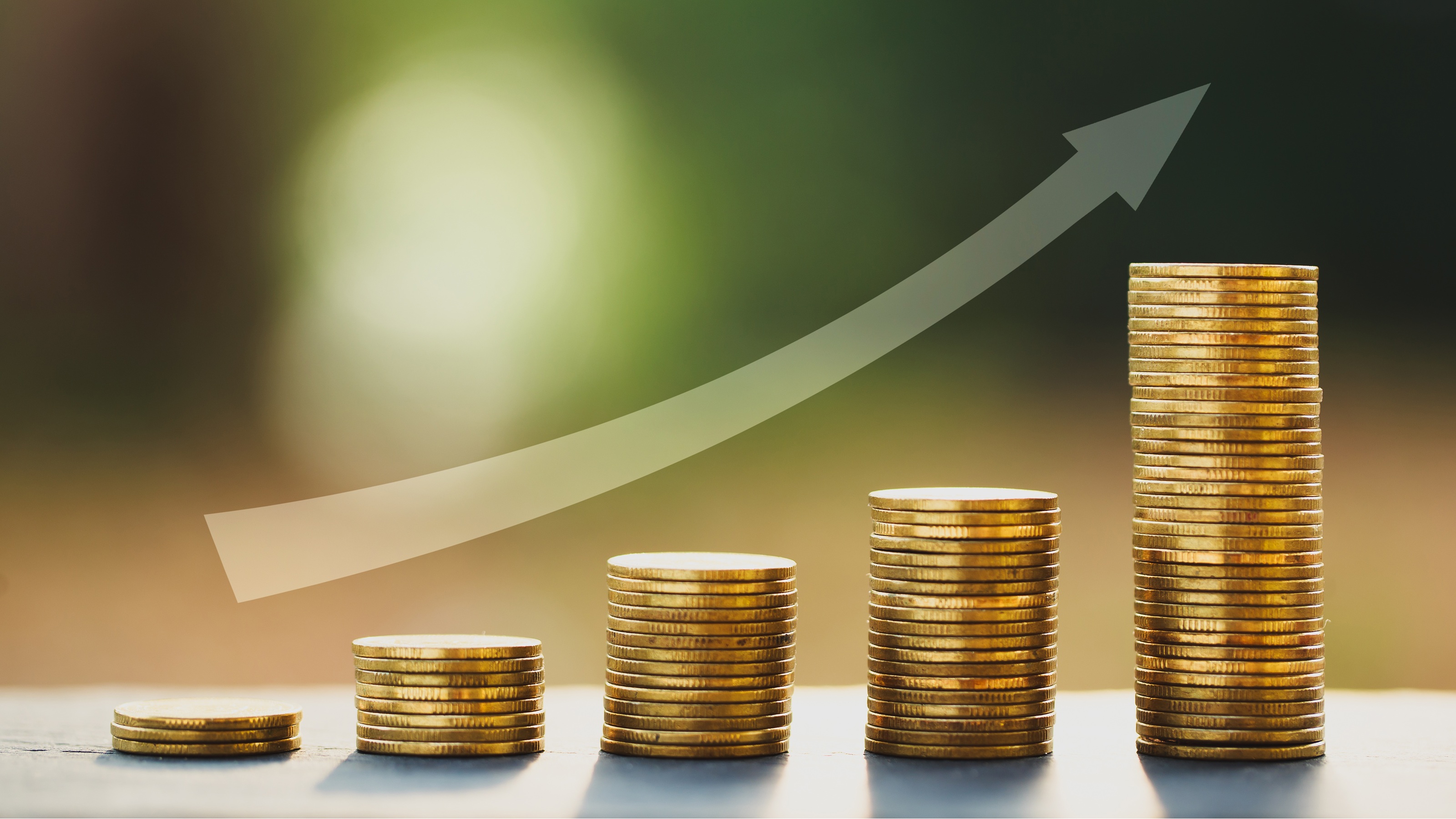
Taking this approach over the past four years has already almost doubled what we got from selling the business.
Any advice for others trying to make their first $1 million?
Pay yourself first. Take care of the basics like food and shelter, but then make sure you've got access to three to six months of monthly expenses. This (emergency fund) will give you some security so that you can take a few risks.
Once you've got that in place, start putting the money you were saving for emergencies each week into some other sort of investment. You're already accustomed to not spending that money — put it into your 401(k), save for a down payment on a house, use it to start a business.
Whatever you do, put it to good use.

Lastly, look for ways to treat yourself without breaking the bank. For instance, I used to buy lattes every day on the way to work.
When I realized how much that was costing me, I bought myself a decent espresso machine.
I still make my coffee at home for a tiny fraction of what I was paying — even after factoring in the initial purchase of the machine.
Do you have an estate plan?
Yes. Our attorney recommended that we establish a revocable trust and pour-over wills to simplify our estate and to avoid probate.
He also helped us to put in place various power of attorney documents.
What do you wish you'd known …
When you first started saving? I wish that I had known the true value of compounding interest back when I first got out of school. While it turned out well in the end, I missed almost a decade of growth by spending my disposable income on things that seemed fun at the time but now I can't even remember.
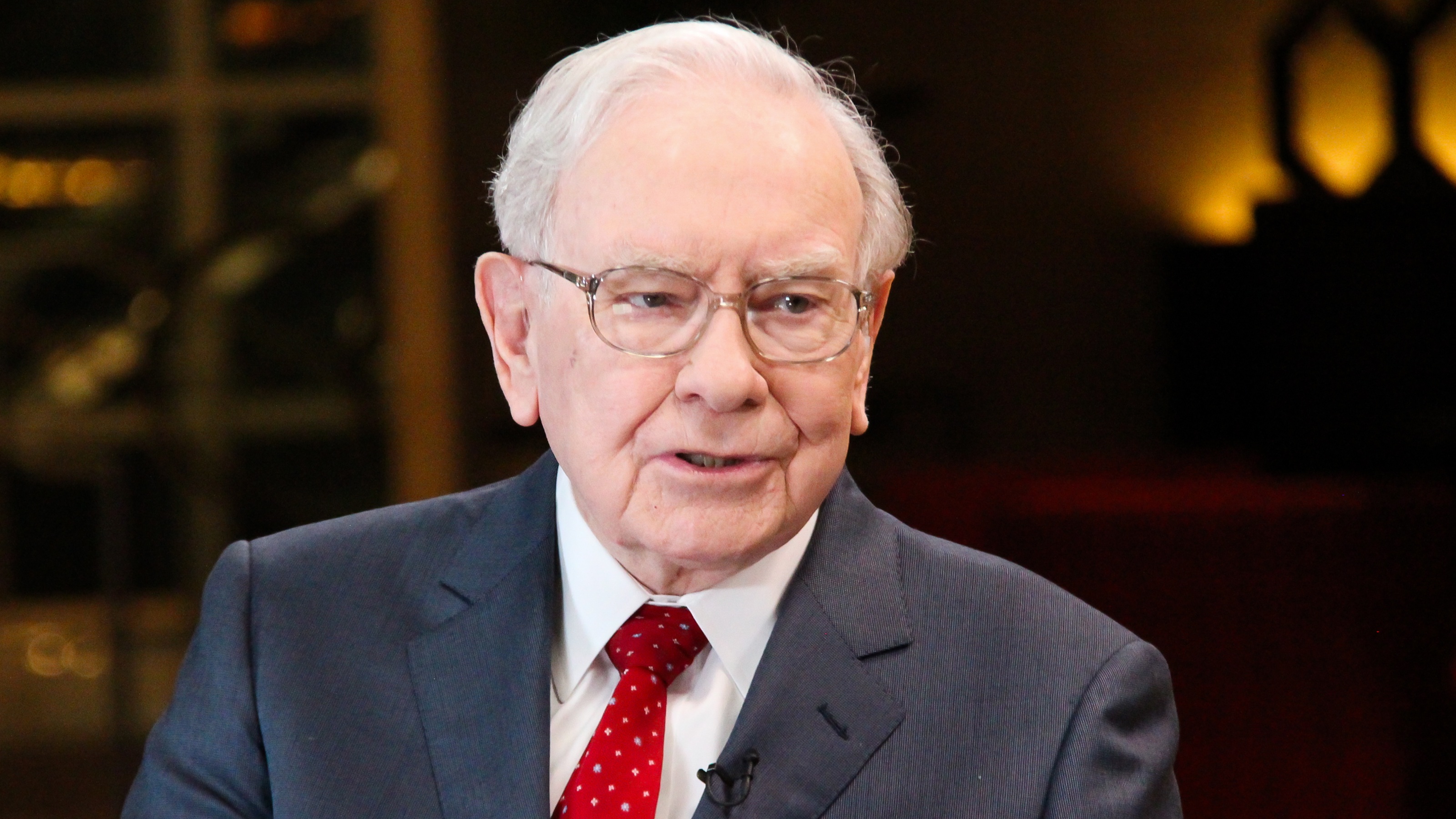
Warren Buffett, chairman and CEO of Berkshire Hathaway, in an interview in 2016.
When you first started investing? I wish I had followed Warren Buffett's advice sooner. I initially tried researching and investing in individual stocks rather than low-cost index funds. It turns out that I'm not very good at that!
When you first started working with a financial professional? Even with the best of intentions, a fiduciary can lead you astray. Maintain ownership of your investment decisions, ask lots of questions and don't be afraid to make a change if the answers don't make sense to you.
Learning that lesson cost me over $50,000 over a two-year period.
If you have made $1 million or more and would like to be anonymously featured in a future My First $1 Million profile, please fill out and submit this Google Form or send an email to MyFirstMillion@futurenet.com to receive the questions. We welcome all stories that add up to $1 million or more in your accounts, although we will use discretion in which stories we choose to publish, to ensure we share a diversity of experiences. We also might want to verify that you really do have $1 million. Your answers may be edited for clarity.
RELATED CONTENT
- You're 62 Years Old With $1 Million Saved: Can You Retire?
- Want to Earn $1 Million More Over Your Lifetime? Do This
- Do You Have at Least $1 Million in Tax-Deferred Investments?
- Are You Rich? U.S. Net Worth Percentiles Can Provide Answers
- Compare Your Net Worth by Age
Profit and prosper with the best of Kiplinger's advice on investing, taxes, retirement, personal finance and much more. Delivered daily. Enter your email in the box and click Sign Me Up.
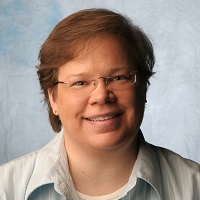
As Contributed Content Editor for the Adviser Intel channel on Kiplinger.com, Joyce edits articles from hundreds of financial experts about retirement planning strategies, including estate planning, taxes, personal finance, investing, charitable giving and more. She has more than 30 years of editing experience in business and features news, including 15 years in the Money section at USA Today.
-
 Thinking of Switching Phone Carriers? Do These 8 Things First
Thinking of Switching Phone Carriers? Do These 8 Things FirstSwitching carriers is easier than ever, but overlooking the fine print could cost you. Here’s what to check before you make the move.
-
 Samsung Galaxy S26 Ultra: What to Know Before You Upgrade
Samsung Galaxy S26 Ultra: What to Know Before You UpgradeThe Galaxy S26 Ultra brings new features and strong launch deals, but whether it’s worth upgrading depends on what you already own.
-
 Nasdaq Soars Ahead of Nvidia Earnings: Stock Market Today
Nasdaq Soars Ahead of Nvidia Earnings: Stock Market TodayWednesday's risk-on session was sparked by strong gains in tech stocks and several crypto-related names.
-
 What Is an Assumable Mortgage and Could It Save You Thousands?
What Is an Assumable Mortgage and Could It Save You Thousands?With mortgage rates still elevated, taking over a seller’s existing home loan could lower monthly payments — if the numbers work.
-
 Have You Fallen Into the High-Earning Trap? This Is How to Escape
Have You Fallen Into the High-Earning Trap? This Is How to EscapeHigh income is a gift, but it can pull you into higher spending, undisciplined investing and overreliance on future earnings. These actionable steps will help you escape the trap.
-
 I'm a Financial Adviser: These 3 Questions Can Help You Navigate a Noisy Year With Financial Clarity
I'm a Financial Adviser: These 3 Questions Can Help You Navigate a Noisy Year With Financial ClarityThe key is to resist focusing only on the markets. Instead, when making financial decisions, think about your values and what matters the most to you.
-
 Where Olympians Store Their Medals is a Great Lesson For Your Valuables and Cash
Where Olympians Store Their Medals is a Great Lesson For Your Valuables and CashWhat you can learn about protecting your cash and values from where Olympians store their medals.
-
 An Executive's 'Idiotic' Idea: Skip Safety Class and Commit a Federal Crime
An Executive's 'Idiotic' Idea: Skip Safety Class and Commit a Federal CrimeSeveral medical professionals reached out to say that one of their bosses suggested committing a crime to fulfill OSHA requirements. What's an employee to do?
-
 How You Can Use the Financial Resource Built Into Your Home to Help With Your Long-Term Goals
How You Can Use the Financial Resource Built Into Your Home to Help With Your Long-Term GoalsHomeowners are increasingly using their home equity, through products like HELOCs and home equity loans, as a financial resource for managing debt, funding renovations and more.
-
 How to Find Free Money for Graduate School as Federal Loans Tighten in 2026
How to Find Free Money for Graduate School as Federal Loans Tighten in 2026Starting July 1, federal borrowing will be capped for new graduate students, making scholarships and other forms of "free money" vital. Here's what to know.
-
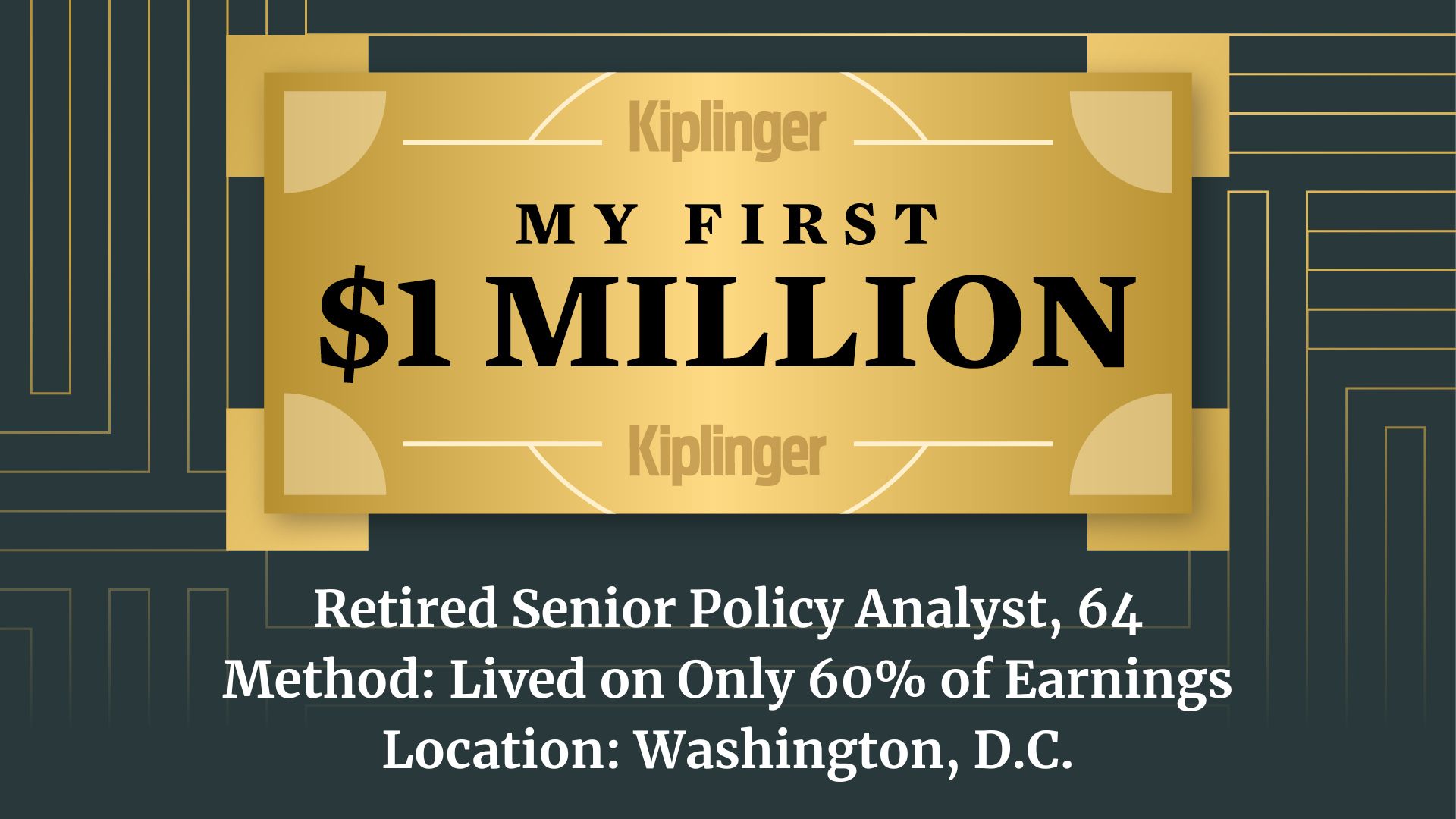 My First $1 Million: Retired Senior Policy Analyst, 64, Washington, D.C.
My First $1 Million: Retired Senior Policy Analyst, 64, Washington, D.C.Ever wonder how someone who's made a million dollars or more did it? Kiplinger's My First $1 Million series uncovers the answers.